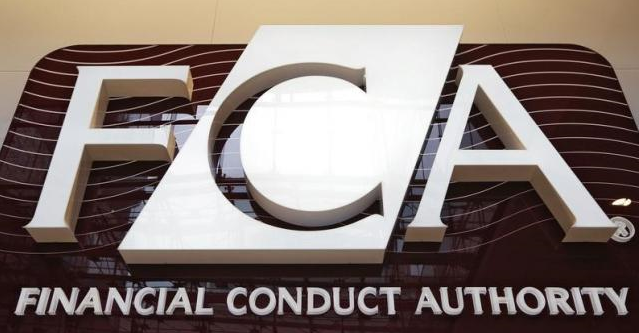The Financial Conduct Authority’s (FCA) review of the motor finance industry is likely to have wide-reaching implications for the automotive retail sector.
The report, prompted by the FCA’s desire to learn more about the sales process and record levels of car finance amid concerns about a lack of transparency and potential conflicts of interest, focused on three main areas – commissions, information disclosure and affordability.
Launched in April 2017, the review analysed loan data from 20 motor finance providers, mystery shops of 122 motor retailers, and a survey of lenders.
David Bilsborough, owner of Cheshire Cars and founder member of the Independent Motor Dealers Association (IMDA), said the FCA’s method of mystery shopping was a common practice in retail and retailers should expect it.
But he added that those who comply with FCA requirements had nothing to fear.
“If you disclose the full facts of the finance deal to a potential buyer in a clear and timely fashion before they have signed the agreement or handed over any money, that person can’t turn around and say that you didn’t give them the pre-contract information they needed to make a decision,” he said.
However, Andrew Smith, FCA subject matter expert for consumer credit and motor finance at Paxen Consulting, said it was somewhat unfair and unrepresentative for the FCA to judge the whole market without seeing the complete sales process, including commission disclosure. He believes its conclusions should have been based more on in-depth interaction with lenders and brokers.
Commission models at risk
Among the key findings of the report were concerns about the widespread use of commission models that give brokers wide discretion when setting interest rates for customers. This can incentivise the broker to charge a higher rate and lead to conflicts of interest, with a link between higher commissions and increased interest rates, the report concluded.
The FCA estimated that such commission models could be costing customers a combined £300 million more per year than if they had used a flat fee model. For example, on a typical motor finance agreement of £10,000, higher broker commission under the reducing difference in charges (DiC) model can add about £1,100 more in interest charges for the customer over a four-year term.
The review also highlighted concerns that lenders are not doing enough to monitor commissions and protect the customer. And it warned that pricing and affordability for customers could be adversely affected if such commission arrangements break the link between credit risk and the customer’s interest rate.
The FCA said it is assessing what action it will take, but possible courses of action include consulting on changes to its consumer credit rules, banning DiCs and similar models, or limiting broker discretion.
Adrian Dally, the head of motor finance at the Finance and Leasing Association (FLA), said the FCA’s findings were broadly in line with issues it had also identified, chiefly DiCs. But he added that the figures were out of date and said the automotive retail industry has made big strides since then.
“When we had a look into DiCs in 2014, we took a clear position that it had had its time,” he said.
“The FCA’s figures relate to 2017. At the time it carried out its research, half of the near-prime and prime used car market was still using DiCs, but two years down the line we have moved on and the vast majority have exited that model.”
Car finance expert and ex-National Association of Commercial Finance Brokers director Graham Hill said in many cases, dealers and brokers will increase the annual percentage rate (APR) to be able to provide customers with the opportunity to pay off the finance owed on a part-exchange, or greater discounts or “freebies” in other areas. These could include tanks of fuel, car mats, GAP and breakdown insurance, roadside assistance, warranties and paint protection, or even options on the vehicle itself, he said.
“The position is by no means as straightforward as dealers upselling the interest in order to line their pockets,” he said.
“Setting an arbitrary cap will have a similar effect to what happened with payday lenders, ultimately resulting in less choice for the consumer and jobs and companies going to the wall.”
Jerry Page, a director at iComply, said it’s only a matter of time before the FCA will require full commission disclosure, to everyone’s benefit. He cited the example of independent financial advisers (IFAs), who were subject to similar action by the FCA’s predecessor, the Financial Services Authority.
“If you go back 15 years, IFAs were required to disclose commissions and it didn’t destroy their business,” he said.
“After all, if you get a mortgage or a life insurance policy, you can see how much commission is paid to the introducer, so why shouldn’t it be an obligation for motor finance?”
But James Tew, chief executive of iVendi, said this would only add further complexity because both the commission the lender pays the broker and the commission the dealer receives from that broker will have to be disclosed. The bottom line, he said, was that the lender will be required to have greater operational oversight of their brokers and dealers, which is often difficult because the lender only gets involved at the end of a sale when it receives the consumer’s application.
“The FCA is more concerned about the total amount of commission received rather than what the dealer and broker earn individually,” he said.
“But the important thing is that it’s done in a transparent manner.
“I would imagine that the FCA will make these changes in small steps, demanding greater oversight and understanding by lenders of how their product is being sold by their introducers. It also suggests the greater use of digital processes to check how the transaction has been done.”
Transparency concerns
The next area the FCA shone a spotlight on was the provision of sufficient, timely and transparent information to the customer. The review’s mystery shops found instances where it was unclear whether pre-contractual disclosure and explanations were being made in enough time to enable customers to make an informed decision.
Where customers had been given sufficient time, the FCA found explanations were not always complete, clear or easy to understand.
The FCA also said there was no clear evidence of compliance with the requirements in its Consumer Credit sourcebook (CONC)
on disclosure of brokers’ status and remuneration. It reinforced the point that brokers must clearly disclose any commission or other financial arrangement with a lender which could affect their impartiality in promoting a particular product or influence the customer’s decision, as well as revealing the amount they will earn if asked.
On the lending side, the review also raised doubts about whether and to what extent lenders implemented controls to ensure that brokers – and retailers acting on their behalf –complied with CONC.
“Our work suggests that some lenders may be unduly reliant on contractual requirements and the provision of standard documentation and procedures, and may not monitor brokers sufficiently closely or act where issues are found,” said the report.
“We were particularly concerned that some lenders appear to take the view that it is sufficient that a broker is FCA-authorised, as it can be assumed that they will be compliant with FCA rules (as the FCA will monitor compliance).”
The report went on to say that companies should review their policies, procedures and controls to ensure they are complying with all the relevant regulatory requirements and are treating customers fairly.
Martin Hill, the managing director of DealTrak, said it came as no surprise that many lenders were accused of having insufficient oversight of their car dealers and brokers – a specific requirement of the CONC sourcebook.
He said the fact that only five out of the 20 lenders interviewed demonstrated systems and controls ‘broadly in line with CONC requirements at the time’, meant the majority had dealer and broker arrangements which appear to be unfit for purpose.
Smith said lenders will need to rely on their own individual approaches and judgement when assessing their distribution network. The downside, he said, was that brokers and dealers will have to contend with multiple audits carried out on them for each lender they deal with.
“The FCA will be looking for each individual lender to evidence that they are taking direct responsibility and ownership of their monitoring activity and that of their brokers and dealers, implementing and maintaining a regime of continuous oversight, feedback and improvement, as per CONC,” he said.
“The key point here is, as the FCA states, the lenders are potentially exposed to issues of enforceability if introductions have not been made correctly, or if those making introductions are incorrectly authorised.”
Another problem, said Smith, was current schemes for internal remuneration and incentives for brokers and dealers to sell financial products. Changing that will require a big shift in culture, he said.
However, he added that evidence from other sectors suggests that once the new processes are embedded and managed properly staff “become motivated and incentivised by quality and good customer outcomes, as well as obviously being financially viable”.
“There are a number of approaches and strategies I have devised, for example, which provide a balance between rewarding good productivity and viability along with high-quality work and good customer outcomes.”
Affordability issues
The third and final issue the FCA identified was around affordability assessment. The regulator said it was not satisfied that all lenders surveyed were complying with its rules for assessing creditworthiness, including affordability.
The regulator also reiterated that businesses are expected to have reviewed their policies and procedures in view of the new rules and guidance it published in November 2018 and to make any necessary changes, adding that it would follow up to make sure it had been done.
“Some lenders still don’t ask customers for enough basic information about their income and outgoings,” said Page. “There’s still a lot of work to do to make lenders consistent in their approach and to demonstrate that the product the customer gets in the end is something they can afford.”
Industry repercussions
As far as potential areas where the FCA could demand change, Hill said lenders could be required to revise and reframe their systems and controls regarding dealer and broker relationships.
That way, he said, they will be complying with the FCA’s requirement on the provision of clear information and not misleading the consumer.
“Open and transparent disclosure is seen by the FCA as a fundamental prerequisite, and, historically, many dealers and brokers have been uncomfortable with this level of openness with a customer,”
he said.
“This could be because many customer-facing staff feel inadequately trained or not prepared to have some of the conversations around commissions or finance products, possibly because declaring certain information may cause the customer to ask questions regarding commission or interest rates that the dealer or broker may not feel comfortable answering.
“Fortunately, this is something that can be remedied by formal interventions from senior management at that dealership or brokerage. In other words, senior management decides what compliant performance looks like, and then makes sure their systems and controls are suitable to police and monitor this approach.”
Smith said the review could also open the door to claims management companies if the FCA challenges the enforceability of some DiC model agreements. Therefore, he said brokers and dealers need to examine their past sales practices and identify potential exposures.
Gerry Keaney, the chief executive of the British Vehicle Rental Leasing Association, said the FCA needs to take a more active role in supervising lenders, retailers and brokers, particularly around unfair commission models, stepping in with enforcement where required. He added that there needs to be greater focus on affordability assessments and lenders ensuring their brokers comply with CONC.
“The time for excuses has passed,” he said.
“There is no place in the motor finance sector for companies that are unwilling to embrace the FCA regime and actively demonstrate their compliance.” ALEX WRIGHT





















gezza20 - 27/04/2019 11:24
I cannot quite see the problem with the finance commission system as it is. There is no onus on any customer to take dealership finance, they have the choice of scores of other finance providers, and they can always refinance at any time if they are unhappy with the finance agreement. What is wrong with the industry making a profit from finance provision?